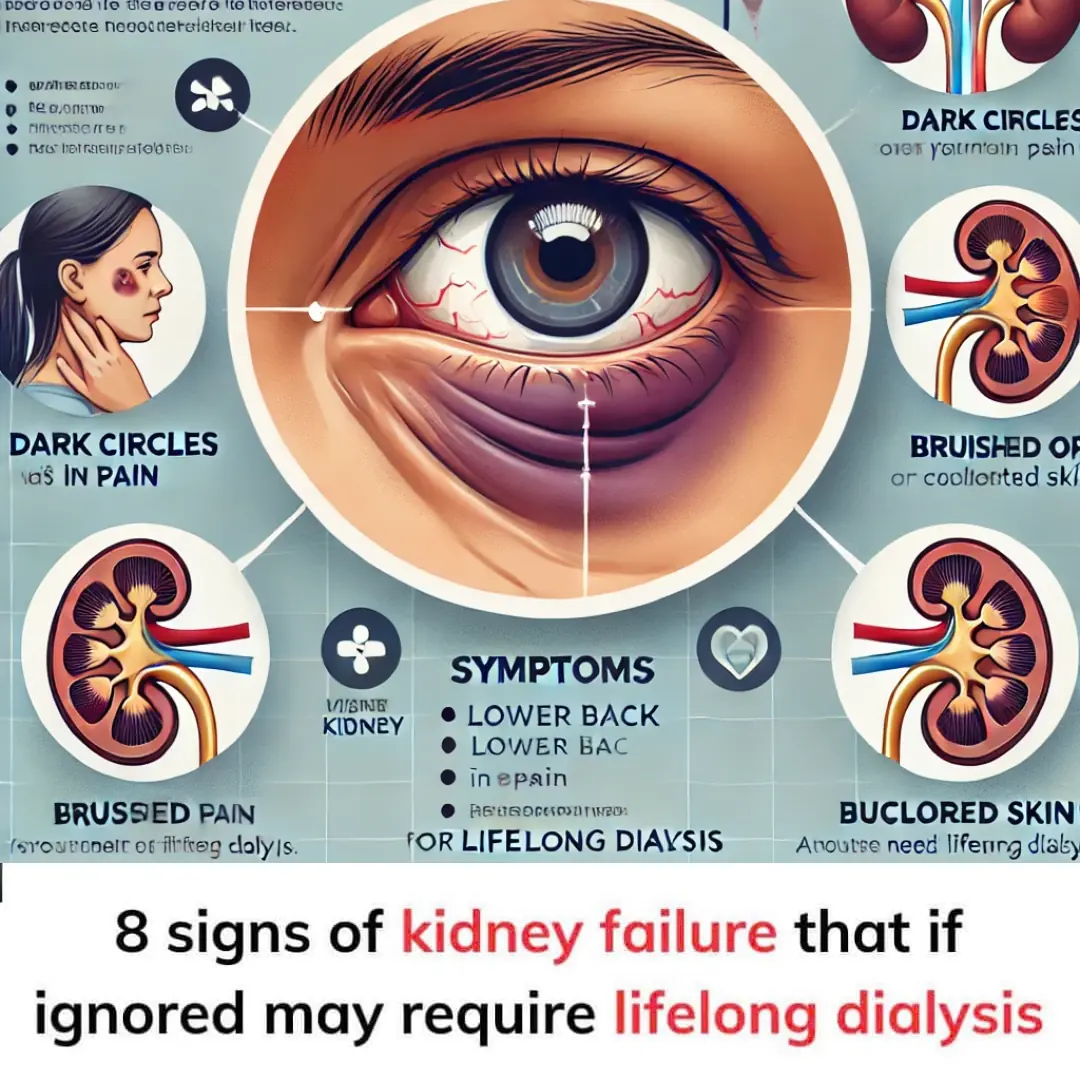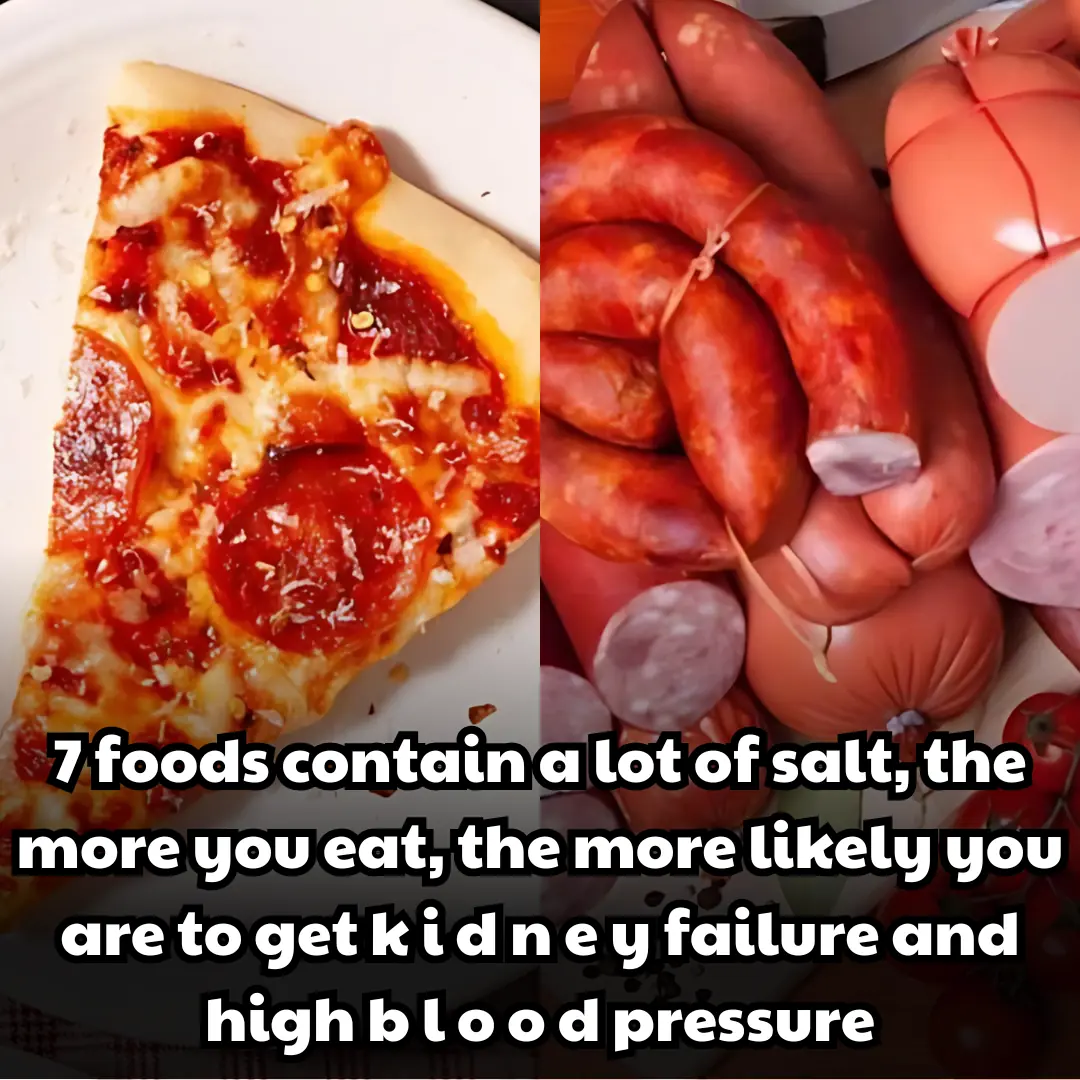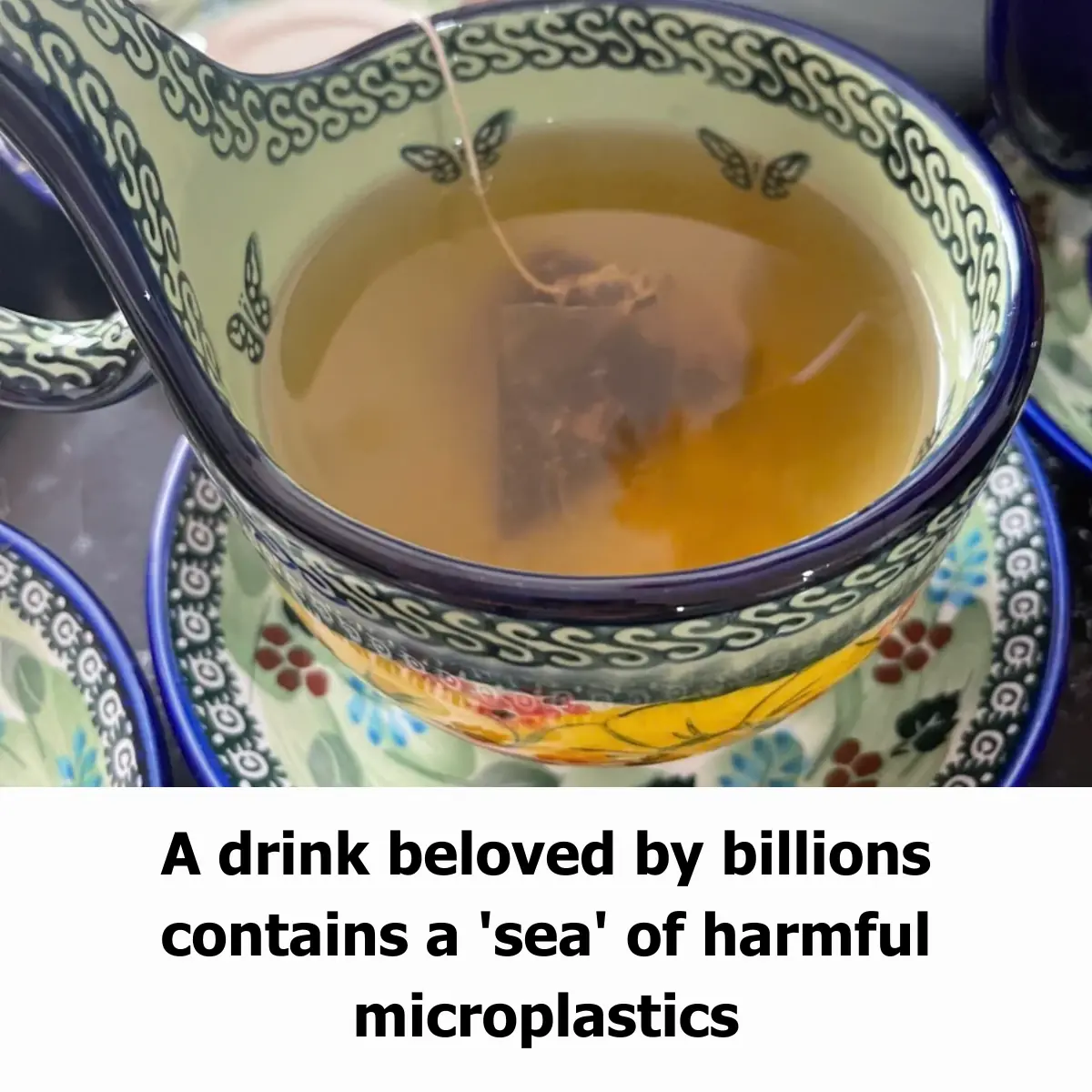
8 signs of kidney failure that if ignored may require lifelong dialysis
8 Warning Signs of Kidney Failure That Could Lead to Lifelong Dialysis
The kidneys play a vital role in filtering waste, balancing fluids, and regulating blood pressure. However, kidney failure often develops silently, with symptoms appearing only when the condition has significantly worsened. Ignoring early warning signs can lead to chronic kidney disease (CKD) or even end-stage kidney failure, which may require lifelong dialysis or a kidney transplant.
To help you stay informed and protect your health, this guide will explore 8 warning signs of kidney failure and when you should seek medical attention.
1. Dark Circles Under the Eyes – Toxin Buildup
If you have persistent dark circles under your eyes, it could be more than just lack of sleep. Poor kidney function leads to a buildup of waste and toxins in the bloodstream, which can affect your skin and eyes.
✔ Why It Happens:
- Kidneys fail to remove toxins, leading to fluid retention around the eyes.
- Protein leakage in urine can cause puffiness and discoloration.
🚨 When to See a Doctor:
- If dark circles persist even after getting enough rest.
- If your face appears swollen or puffy.
2. Swollen Feet and Ankles – Fluid Retention
One of the most common signs of kidney failure is swelling in the feet, ankles, and legs. The kidneys help remove excess fluid from the body, and when they fail, fluid starts to accumulate in the lower extremities.
✔ Why It Happens:
- Sodium retention leads to swelling in the body.
- Poor kidney function causes fluid imbalance.
🚨 When to See a Doctor:
- If swelling lasts more than a few days.
- If you experience shortness of breath or high blood pressure along with swelling.
3. Changes in Urination – Early Kidney Disease Indicator
Your urine can provide valuable clues about kidney health. Pay attention to any unusual changes in urination patterns.
✔ Warning Signs:
- Foamy or bubbly urine – Indicates excess protein leakage.
- Frequent urination at night – Possible kidney dysfunction.
- Dark, cloudy, or bloody urine – Signs of kidney damage or infection.
- Reduced urine output – Could indicate kidney failure.
🚨 When to See a Doctor:
- If you notice persistent changes in urination.
- If urine is bloody or has a foul smell.
4. Lower Back Pain – A Hidden Kidney Problem
Kidney-related lower back pain is often misdiagnosed as muscle pain, but it has distinct characteristics.
✔ How to Identify Kidney Pain:
- Dull, persistent pain on one or both sides of the lower back.
- Pain that worsens at night or after drinking fluids.
- Pain that radiates to the abdomen or groin.
🚨 When to See a Doctor:
- If back pain is accompanied by fever, nausea, or frequent urination.
- If pain is severe or does not improve with rest.

News in the same category


3 types of food should be taken into the body to help sleep better at night

Say Goodbye to Pills: Chayote and Lemon Mixture for Knee Pain, Swollen Feet, High Blood Pressure, and More!

This garlic, lemon, and apple cider vinegar drink is a natural remedy packed with antioxidants and heart-boosting compounds

After 40 years old, if you often see 6 symptoms when sleeping

7 types of acupuncture to effectively treat back p a i n

Yeast & Coffee Erase All Wrinkles in 3 Minutes – Even at 70!

Unveiling the Green Marvel: The Top 10 Health Benefits of Common Mallow Leaves

7 foods contain a lot of salt, the more you eat, the more likely you are to get k i d n e y failure and high b l o o d pressure

Adding olive oil to your diet may reduce your risk of brain disease

A Drink Beloved by Billions Contains a 'Sea' of Harmful Microplastics: The Hidden Danger of Tea

6 plants that attract snakes into your home

Cardiologist reveals 5-minute at-home test

5 evening habits that make it difficult for the liver to detoxify

20 fruits for diabetics and notes when eating

The Natural Power of Garlic, Honey and Cloves: A Practical Approach to Health

Eat 1 boiled banana every day, the body will receive great benefits

7 mistakes when detoxifying the l.i.v.er that make your l.i.v.er weaker and weaker

A healthy 22-year-old man suddenly discovered da.nger.ous tu.bercu.losis from a sign that many people ignore

Just 1-2 cups of leaf juice from this fruit every day and you will feel many miraculous benefits
News Post

Avoid These 4 Types of Bananas When Buying—Even Sellers Won't Eat Them!

At 73 Years Old, I Regenerated My Fatty Liver, Ended Joint Pain

My lover said that he understood me well after several years together

If bitten by a poisonous snake, is it safe to suck on the wound with your mouth?

3 types of food should be taken into the body to help sleep better at night

Say Goodbye to Pills: Chayote and Lemon Mixture for Knee Pain, Swollen Feet, High Blood Pressure, and More!

This garlic, lemon, and apple cider vinegar drink is a natural remedy packed with antioxidants and heart-boosting compounds

Russians put frogs in barrels of milk to prevent the milk from spoiling quickly when exposed to air

Would you get a brain implant from Elon Musk's company?

S.h.o.ck.in.g secrets about flight attendant recruitment more than 70 years ago

After 40 years old, if you often see 6 symptoms when sleeping

7 types of acupuncture to effectively treat back p a i n

Rosemary for Hair Regrowth: Transform Your Shampoo

Yeast & Coffee Erase All Wrinkles in 3 Minutes – Even at 70!

Unveiling the Green Marvel: The Top 10 Health Benefits of Common Mallow Leaves

7 foods contain a lot of salt, the more you eat, the more likely you are to get k i d n e y failure and high b l o o d pressure

Adding olive oil to your diet may reduce your risk of brain disease

Surprising benefits of combining olive oil with milk

If your phone falls into water, do this immediately. Never dry it with a hair dryer
